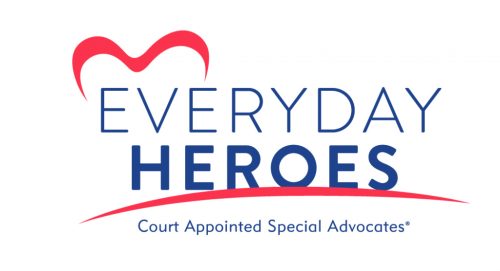Tiffany is an amazing young woman — raising her son as a single mother, holding down a full-time job, and completing her education to become a registered nurse. Hers was not an easy road, however, as she endured the painful absence of nurturing parents and suffered the sting of an adoption gone wrong. She has battled leukemia as an adult and emerged the victor. Tiffany’s story of resilience is beautiful on so many levels, but most notably as it replenishes hope for those who have loved and lost.
The oldest of three children, Tiffany always felt a sense of responsibility for her siblings. When she was a year and a half old, Tiffany’s sister was born addicted to cocaine and their brother was born a year later with fetal alcohol syndrome. Her earliest memories involve living in hotels, but never settling in one place for very long. Finally, when Tiffany was four years old, she and her siblings were placed in a foster home where they hoped to find the safety and security that had proven so elusive. But disappointment was lurking in the shadows, poised to steal another piece of their childhood.
One of Tiffany’s most vivid memories of being in the state’s custody doesn’t involve a foster home or case worker, but the frightening backseat of a local police cruiser. Even at her young age, Tiffany knew that policemen were supposed to keep people safe. But somehow she felt incredibly vulnerable as she and her siblings were stuffed in the backseat and whisked away from the only family they had ever known. She remembers sitting in the lobby of a local police station at four o’clock in the morning, waiting for someone whose heart and home would find room for a few kids who needed a place to belong. Little did she know the wait would be a lot longer than expected.


For quite a while, there was no shortage of foster placements, including one that lasted nearly two years. But when Tiffany was about eight years old, she and her siblings were welcomed into the home of a local couple who would eventually adopt all three children. This seemed like the perfect ending to a bad story, and the beginning of a brand new chapter. They all rocked along for a couple of years, the new parents nearly as happy as the children to finally have a family. But as often happens with things, but should never happen with people, the newness eventually wore off, and a different reality emerged.
About three years in, Tiffany began to sense a profound shift in the family dynamics. As a young teenager, she knew that something was just not right, but didn’t have anyone to confide in. During a time when she should have been hanging out with friends and participating in extracurricular activities, Tiffany was cooking supper and caring for her siblings. In time, it became obvious that everyone in the family was fighting a battle of their own, and some were quickly losing ground. Having succumbed to depression, Tiffany’s sister lost all motivation and eventually dropped out of school. As the months turned into years, what stability and security the children had once known seemed to slowly evaporate, leaving them with a house but not a home.
At the age of seventeen, Tiffany was on her own, working at a local seafood restaurant while earning her G.E.D. In time, both siblings would move in with her, but the teenage party life eventually took its toll on everyone. Upon receiving an eviction notice, Tiffany began searching for someone who would take them in. However, before any formal arrangements could be made, the state got involved and placed them in foster care, separating the two girls from their brother. Soon after that, Tiffany’s brother was placed in a boys’ home, the traumatic yet typical result of perpetual instability.
Tiffany, on the other hand, was only one friendship away from finding a healthy and happy home. She was invited to come and live in the home of her classmate, whose mother took Tiffany in and treated her just like family. In order to qualify as an official “placement” for Tiffany, this mom enrolled in the necessary classes and subjected her home to the intense scrutiny of a home study.
Shortly after moving in with her friend’s family, Tiffany discovered she was pregnant. Determined not to rewrite history, but to start a new chapter in her own story, she began taking college classes during her pregnancy. At this time, Tiffany’s new “mother” collaborated with the case worker and the CASA on the case to secure her best interest moving forward. Because of their support, guidance, and encouragement, Tiffany delivered her baby boy, earned her LPN, and began to heal and grow into a healthy adult. At twenty-five, she was diagnosed with leukemia and underwent a successful bone marrow transplant, yet another evidence of her resilient spirit.
One of Tiffany’s biggest disappointments is knowing that she might have found her happy ending much sooner. If only there had been someone she could talk to, who would understand and speak on her behalf. Surely, some of her heartache and suffering could have been avoided. And her brother and sister might have known different outcomes as well. As adults, Tiffany and her siblings can no longer benefit from the help of a CASA, but there are countless other children who are living a different chapter of the very same story. And for them, CASA can mean the difference between just surviving and thriving, while even survival is in jeopardy for some.
CASA is Court Appointed Special Advocates who get to know children in foster care, gathering the appropriate information in order to advocate for the child’s best interest in court. For more information, contact melinda.wallace@vyjla.org or check out the website www.vyjla.org.








